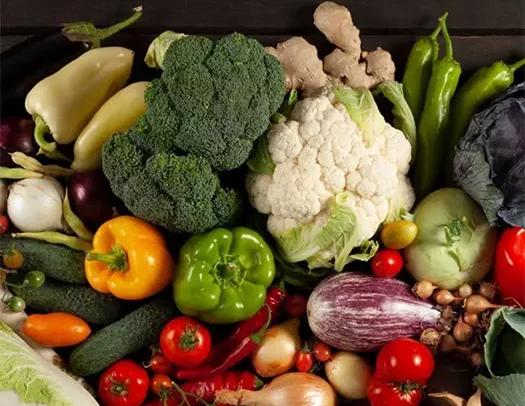Endometriosis is a long-term, often painful condition in which tissue similar to the inner lining of the uterus (endometrium) grows outside the uterus. This misplaced tissue can cause inflammation, scarring, and sometimes infertility. It is estimated that about one in ten women of reproductive age globally are affected by endometriosis.
While specific statistics for Ghana are limited, anecdotal reports suggest that it is a significant cause of infertility and pelvic pain among women. Emerging evidence suggests that nutrition can play a significant role in managing symptoms and improving quality of life. In particular, dietary strategies that help reduce inflammation and support hormone balance are proving to be beneficial.
How Nutrition affects Endometriosis
Endometriosis symptoms such as pelvic pain, fatigue, digestive issues, and painful menstruation are largely driven by chronic inflammation and hormonal imbalances.
Because the foods we eat influence both of these processes, diet becomes a valuable tool in managing this condition. A few evidence based strategies are discussed below.
Anti-inflammatory Foods to Reduce Pain and Swelling
Chronic inflammation is a key feature of endometriosis. Including more antioxidant-rich foods in the diet can help combat this inflammation. Local fruits and vegetables such as oranges, mangoes, kontomire, carrots, and tomatoes are good sources of antioxidants.
Anti-inflammatory spices like ginger and turmeric, commonly used in Ghanaian cooking, can also be helpful. Omega-3 fatty acids from fatty fish like mackerel (salmon in local terms), sardines, or tuna support the body’s ability to regulate inflammation.
Dietary Fibre for Hormonal Regulation
Excess oestrogen in the body can worsen endometriosis symptoms. Diets high in fibre assist the body in removing excess oestrogen through the digestive tract.
Whole grains like brown rice, maize and millet, legumes such as beans and bambara, and vegetables like cabbage and garden eggs can support this process.
Limiting Red and Processed Meats
Studies suggest that high intake of red and processed meats (such as corned beef, sausages, and fried meats) may be associated with increased inflammation and hormone disruption.
Instead, opt for plant-based protein sources like beans, lentils, groundnuts, and moderate amounts of fish or poultry.
Key Micronutrients: Vitamin D, Magnesium, and More
Vitamin D supports immune function and may benefit women with endometriosis. In Ghana, safe sun exposure is usually sufficient, but food sources like eggs and oily fish can help supply the vitamin.
Other nutrients like magnesium (found in leafy greens and legumes), vitamin E (in avocados and groundnuts), and iron (fish, leans meats and dark leafy vegetables) may also help reduce fatigue and support recovery from heavy menstrual bleeding.
Personalised Adjustments for Digestive Symptoms
Some women with endometriosis report digestive symptoms, particularly bloating and irregular bowel movements. Diets like the low FODMAP or gluten-free diet may offer relief.
However, these diets are often very restrictive and should be trialled under the guidance of a trained nutrition professional. Also, it might be helpful to keep a simple food diary to track meals that seem to trigger symptoms.
Final Thoughts
Although no specific diet can cure endometriosis, a well-planned, nutrient-rich diet can help reduce the severity of symptoms and improve daily wellbeing.
In Ghana, where access to specialist gynaecological care may be limited for many women, food becomes a practical and empowering part of self-care.
Every woman’s experience with endometriosis is different. Dietary changes work best when they are tailored to individual needs.
If you are living with endometriosis, speak to a registered dietitian or healthcare provider for personalised nutrition and diet guidance.
Dr. Laurene Boateng is a Registered Dietitian and Senior Lecturer in the Department of Dietetics, University of Ghana. She is the founder and editor-in-chief of Full Proof Nutrition, a website committed to providing reliable, evidence-based, and practical healthy eating advice. Click here to join Full Proof Nutrition WhatsApp channel and send us a mail at fullproofnutrition@gmail.com.
Dr. Laurene Boateng (PhD, RD)


